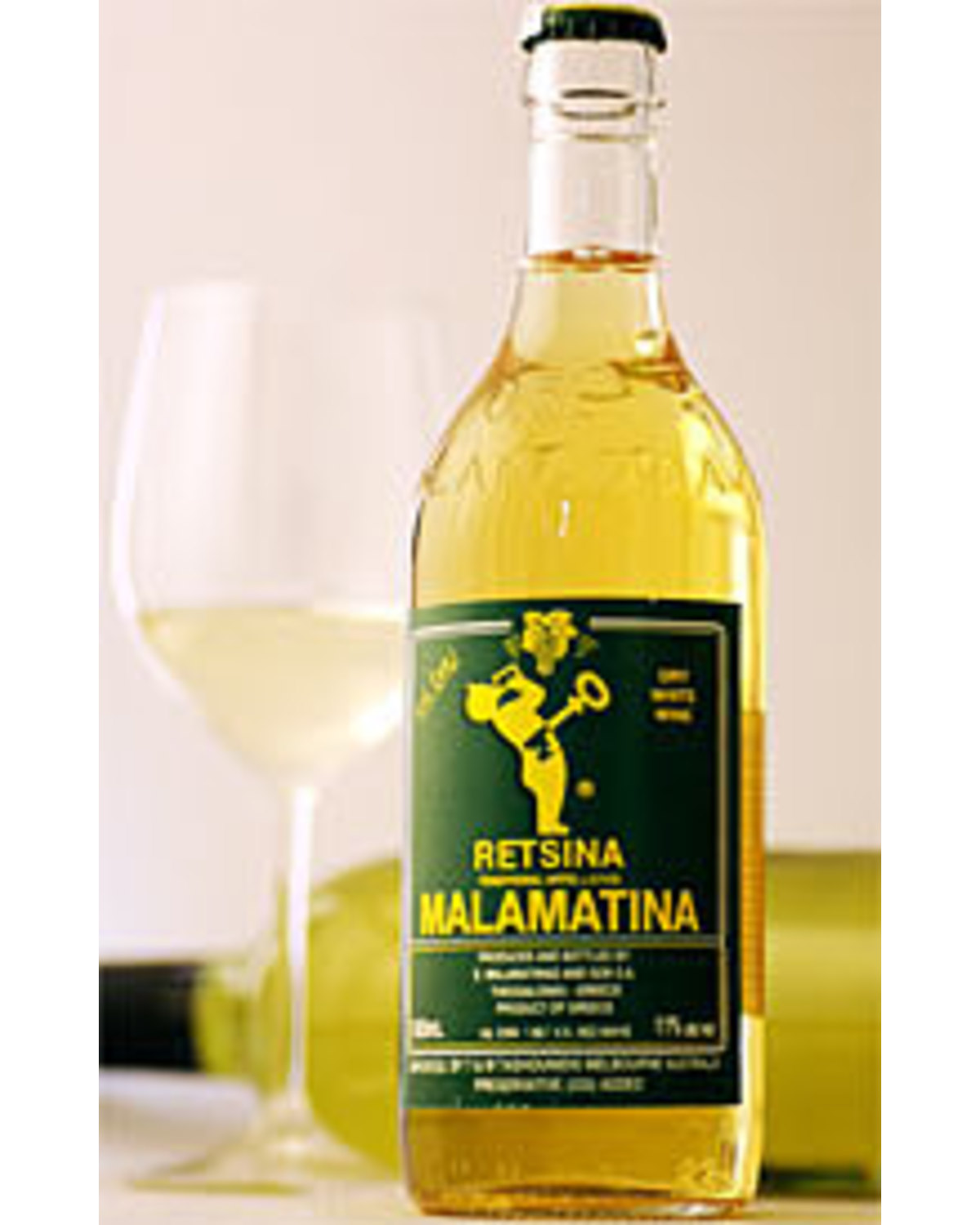
Malamatina Retsina (500ml)
The terebinth tree is abundant in the Middle East, growing even in desert areas. A single tree, which can grow to as much as 12 meters high, can yield up to 2 kilograms of resin. Pliny the Elder, the famous 1st century A.D. Roman encyclopedist, devoted a good part of one of his books to the problem of preventing wine from turning to vinegar. Tree resins--pine, cedar, and often terebinth (which Pliny described as the "best and most elegant" resin)--were added to Roman wines for just this purpose. Roman also used resins for medicinal purposes; indeed, modern chemical investigations have proven that resins can kill certain bacteria, thereby protecting organic compounds from degradation. In recent times, terebinth tree resin has been used to make chewing gum in Greece and prepare perfume in Egypt. The only modern carryover of the ancient tradition of resinated wine is Greek retsina.
Source: "The Origins and Ancient History of Wine." Dr. Patrick McGovern, University of Pennsylvania Museum of Archeology & Anthropology.size>
Malamatina Retsina has been a family tradition for four generations. With each generation the Malamatina family have continued to refine and improve this distinctive Greek dry wine. 11% Alc./Vol.
No tasting notes available.
to most of Australia
